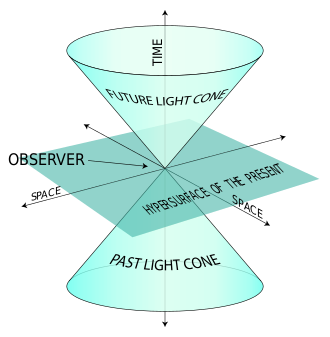Future
Future refers to the time period that will come after the present. Its nature is the subject of many philosophical, physical, and scientific speculations. Understanding the future has been a central quest in many cultures, approached through various disciplines such as astrology, divination, prophecy, and more scientifically through futurology or future studies. The concept of the future is important in philosophy, particularly in the study of time and the philosophy of history, as well as in physics, with discussions on the arrow of time and the theory of relativity.
Concept
The future is often considered in contrast to the past and the present, and its nature is debated among philosophers. One major philosophical question is whether the future is predetermined—due to fate or destiny—or if it is open to free will and chance. This debate touches on the concepts of determinism and free will, with various philosophical traditions offering different views on the matter.
In Physics
In physics, the concept of the future is intricately linked to the arrow of time, which posits that time seems to flow in one direction from the past to the future, a phenomenon closely associated with the second law of thermodynamics and the increase of entropy. The theory of relativity introduced by Albert Einstein also has implications for the concept of the future, particularly in how time can be dilated and how simultaneity is relative, depending on the observer's speed and position in the universe.
Future Studies
Future studies or futurology is an interdisciplinary field that seeks to hypothesize, predict, and analyze potential futures and the processes that may lead to them. It combines knowledge from various fields such as economics, sociology, technology, and environmental science to make predictions and prepare for possible futures. Techniques used in future studies include trend analysis, scenario planning, and simulations.
Cultural Aspects
Different cultures have various beliefs and practices related to the future, ranging from predictive practices like astrology and divination to philosophical and religious beliefs about predestination and free will. The concept of the future also plays a crucial role in literature and media, particularly in the science fiction genre, which often explores futuristic technologies, societies, and ethical dilemmas.
Challenges and Ethics
The future presents both opportunities and challenges. Technological advancements can lead to improvements in quality of life, but they also raise ethical questions and potential risks, such as those associated with artificial intelligence, genetic engineering, and climate change. The ethical consideration of future generations and their rights is a significant aspect of environmental ethics and policy-making.
See Also
Transform your life with W8MD's budget GLP-1 injections from $125.
W8MD offers a medical weight loss program to lose weight in Philadelphia. Our physician-supervised medical weight loss provides:
- Most insurances accepted or discounted self-pay rates. We will obtain insurance prior authorizations if needed.
- Generic GLP1 weight loss injections from $125 for the starting dose.
- Also offer prescription weight loss medications including Phentermine, Qsymia, Diethylpropion, Contrave etc.
NYC weight loss doctor appointments
Start your NYC weight loss journey today at our NYC medical weight loss and Philadelphia medical weight loss clinics.
- Call 718-946-5500 to lose weight in NYC or for medical weight loss in Philadelphia 215-676-2334.
- Tags:NYC medical weight loss, Philadelphia lose weight Zepbound NYC, Budget GLP1 weight loss injections, Wegovy Philadelphia, Wegovy NYC, Philadelphia medical weight loss, Brookly weight loss and Wegovy NYC
|
WikiMD's Wellness Encyclopedia |
| Let Food Be Thy Medicine Medicine Thy Food - Hippocrates |
Medical Disclaimer: WikiMD is not a substitute for professional medical advice. The information on WikiMD is provided as an information resource only, may be incorrect, outdated or misleading, and is not to be used or relied on for any diagnostic or treatment purposes. Please consult your health care provider before making any healthcare decisions or for guidance about a specific medical condition. WikiMD expressly disclaims responsibility, and shall have no liability, for any damages, loss, injury, or liability whatsoever suffered as a result of your reliance on the information contained in this site. By visiting this site you agree to the foregoing terms and conditions, which may from time to time be changed or supplemented by WikiMD. If you do not agree to the foregoing terms and conditions, you should not enter or use this site. See full disclaimer.
Credits:Most images are courtesy of Wikimedia commons, and templates, categories Wikipedia, licensed under CC BY SA or similar.
Contributors: Prab R. Tumpati, MD




